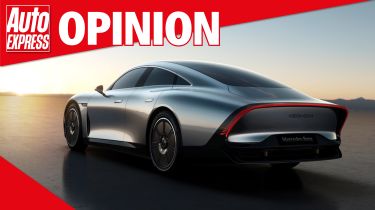“We need reliable charging infrastructure before we worry about 600-mile electric cars”
Andy Palmer thinks the focus on expanding the range of electric cars should take a back seat to improving public charging facilities

If you Google ‘Mercedes Vision EQXX’ you’ll see a host of media articles lauding the new electric vehicle’s whopping 620-mile-plus range. Without doubt, the headline figures grab attention. The EQXX’s claimed range offers close to double the distance from a full charge than a Tesla Model S ‘Long Range’ does.
To build an EV battery with that kind of range is unprecedented and certainly an engineering feat. But to quote the famous scene in Jurassic Park: “Your scientists were so preoccupied with whether or not they could, they didn’t stop to think if they should.” Of course, I’m not comparing the destruction wreaked by man-made dinosaurs to a long-range battery, but the premise remains. Do we really need a 620-mile range on an electric vehicle? Or are we being seduced, once again, into the consumerism world where more is always better?
Compare it with traditional combustion-engined vehicles. When was the last time you maxed out your tank on one journey? Probably never. The average car journey in the UK is 8.4 miles. The EQXX lets you do 74 of those journeys on just one charge.
Some of you may be thinking, “I’d rather have the option to go far than not”. It’s a valid point, but we must also consider efficiency. Batteries are heavy. On an EV, they are by far the largest component. Let’s say that a sensible real-world range for an EV is around the 200-mile mark (it’s worth considering that motorbikes tend to have a 100-mile range arguably without range-anxiety). In this instance, that means roughly two-thirds of the battery is redundant weight and begs the question whether a consumer would prefer to buy their EV for £10,000 less and save more of the world’s precious resources?
Of course, the elephant in the room for this argument is infrastructure. Until we have a reliable and vast charging network in the UK, range anxiety will always be a factor. While Mercedes has done its very best to optimise the EQXX’s drag and the efficiency of its electric powertrain to maximise range from the car’s circa 100kWh battery, this is still a large unit, and by investing in an large-capacity battery rather than sufficient charging infrastructure, I fear we are all seeking to tackle this issue the wrong way round.
Find out everything you need to know about the British electric car charging network here...




